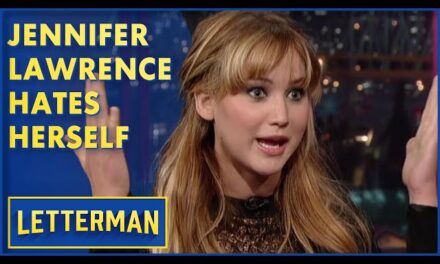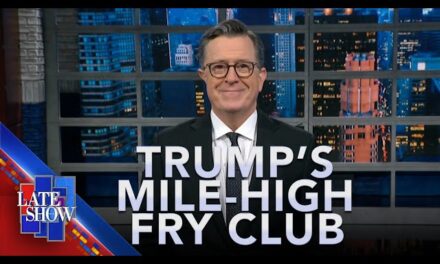In a recent interview on a popular talk show, stage manager Dency Nelson shared some of his favorite moments from his time working with talk show host David Letterman. Nelson began by recounting his early days on the “morning David Letterman show” in 1980, where he served as Dave’s “qard” guy. From there, he transitioned to being a talent researcher for “Late Night with David Letterman” in 1982, before eventually becoming one of Dave’s first stage managers along with Biff Henderson.
Nelson recalled a particularly memorable moment when the show experimented with showcasing Dave’s point of view. During an episode, the camera followed Dave backstage as he interacted with various staff and crew members. This unique perspective provided viewers with a behind-the-scenes glimpse into the preparation and excitement leading up to the show. Nelson also shared how the producers and writers of the show played significant roles in its success.
Over the years, the show had its fair share of unexpected and humorous moments. One notable incident involved a miscommunication about the audience’s language. Nelson mentioned that the entire audience for a particular episode was Norwegian and did not speak English, resulting in the suggestion to use words like “f” and “fish” to elicit laughter. This offbeat strategy highlights the show’s willingness to venture beyond the norm in search of comedy.
Nelson also reminisced about the Christmas show the team put together in July 1980, as they anticipated the possibility of not making it to Christmas. The show featured ice skating at Rockefeller Plaza, with Nelson and Merl Marco acting as “happy skaters.” This unconventional celebration highlighted the show’s ability to create excitement and joy, regardless of the time of year.
The talk show format also allowed for interaction with the audience and special guests. Nelson mentioned a couple who had asked if they could have their anniversary party featured on the show. Dave granted their request, and during the celebration, a combination of sparklers and confetti led to an unexpected and fiery moment on stage. This incident not only provided a spectacle but also served as publicity for the show.
As the show faced its inevitable end, the last few episodes were emotional for the entire team. Dave had already announced that “Card Sharks” and “Las Vegas Gambit” would replace his show, emphasizing the importance of giving the staff an opportunity to showcase themselves for future work. The final episode was filled with heartfelt moments and memories, including staff members dressing up as giant cards and dancing on stage as the show bid farewell.
Throughout its run, the talk show featured unique characters and guests who helped create unforgettable moments. Comedian Andy Kaufman, known for his unpredictable nature, made several appearances on the show, always leaving the audience guessing. Another beloved character, Larry Bud Melman, portrayed by Calbert DeForest, was known for his willingness to do anything asked of him, even when things went awry.
The show’s final episode was filled with a mixture of nostalgia and gratitude. The last song performed was an emotional rendition of “Everlong” by the Foo Fighters, accompanied by a slideshow of still images from various years of the show. This touching tribute, compiled by Barbara Gaines, captured the essence of what it meant to be a part of the David Letterman family.
Looking back, Nelson highlighted the unique and loyal atmosphere of the show. The sense of family and the positive impact it had on the lives of those involved made it truly special. Dave’s ability to march to the beat of a different drummer contributed to the show’s success and set it apart from others in the industry.
In conclusion, Dency Nelson‘s recollections of his time working on the talk show with David Letterman revealed the behind-the-scenes magic that made it a beloved and unforgettable program. From innovative camera techniques to unexpected mishaps, the show continuously pushed boundaries, delivering entertainment that resonated with audiences for years to come.




